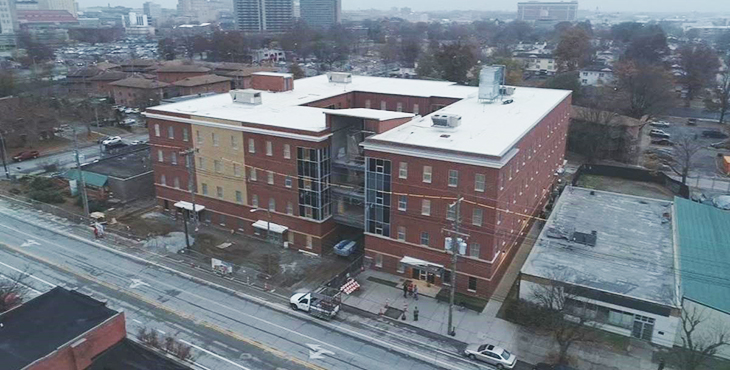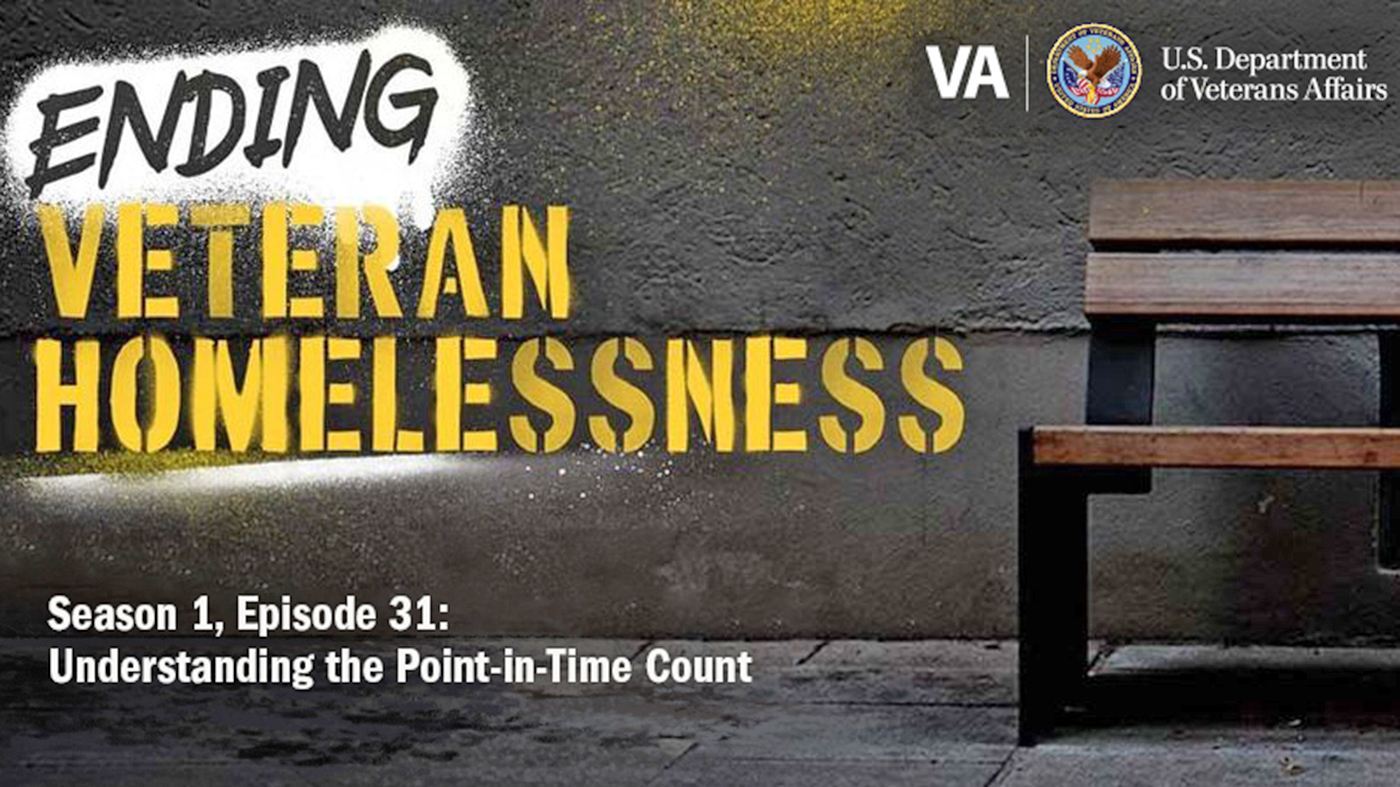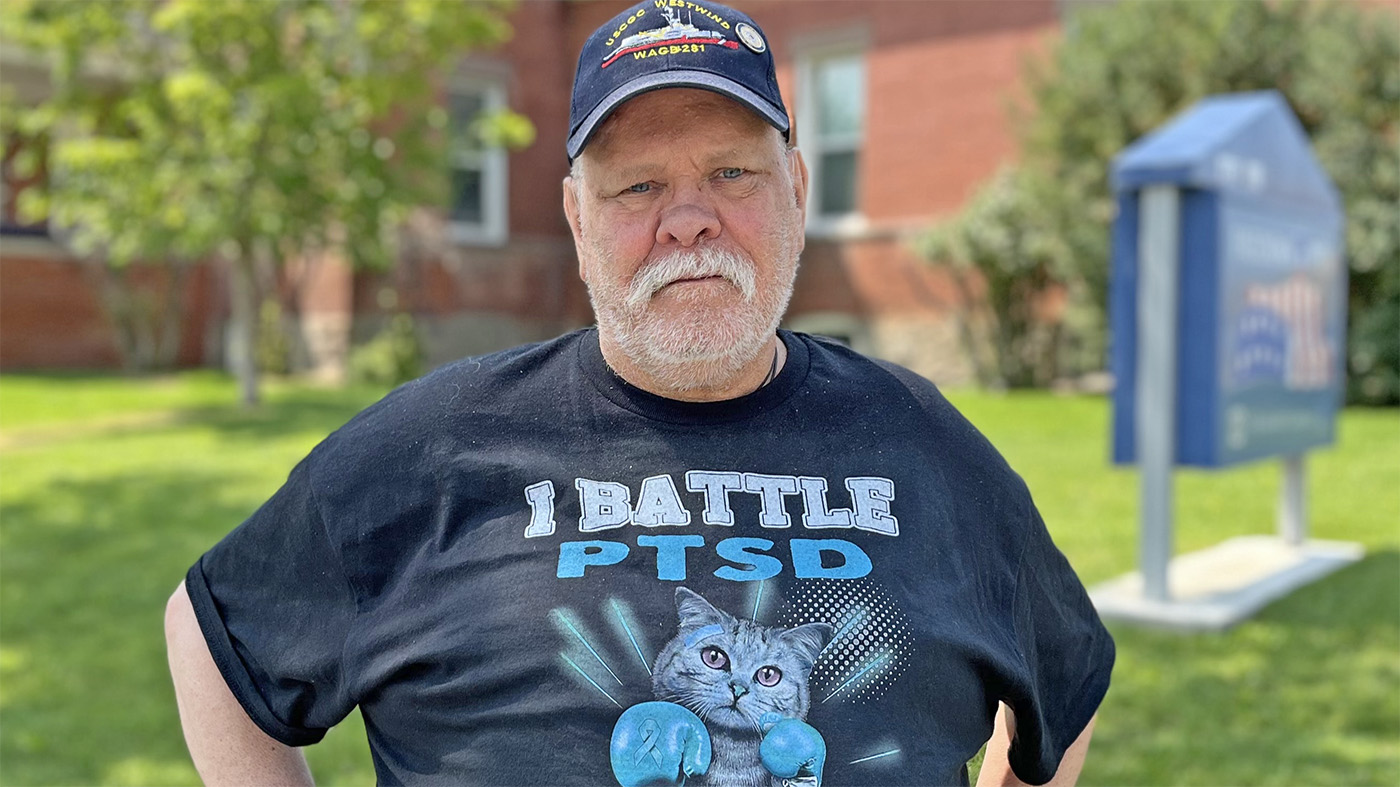On Jan. 30, I had the privilege of taking part in the annual Point-in-Time (PIT) Count in Louisville, KY. Each year, the count occurs in communities across the nation during the last ten days of January to tally the number of individuals—including Veterans—who are homeless. Data captured during the count provides VA with a nationwide snapshot of Veteran homelessness. During the count, volunteers canvass each community in the late evening into the early hours of the morning to find people who call city streets, train stations, parked vehicles, and other places not meant for human habitation “home.”
VA uses the results of the PIT Count with other data to make strategic decisions about programs for Veterans who lack stable housing. This year, nearly twenty senior officials from across VA took part in the count. Those who participated had expertise in areas ranging from law, information technology, construction and mortgage financing to accounting and advertising. In addition, clinical personnel from every VA medical center who work with homeless Veterans each day also participated to continue their ongoing outreach to identify homeless Veterans and connect them to VA care and services.
In Louisville, I accompanied local organizers and nearly 400 volunteers during the count. Assigned to teams of 10 to 15 people each, participants spanned across our assigned sections of the city to identify people who lack stable housing, make them aware of local homelessness resources, and document each encounter on a survey form which the local homelessness continuum of care will use later to finalize the tally of those in Louisville who are homeless. The preliminary estimate revealed that more than 100 individuals were sleeping outside. The estimate of homeless individuals in emergency shelters and transitional housing during the night of the count is not yet available.
For me, this firsthand glimpse of what homeless Americans experience each day was a stark reminder of how critical it is that VA staff continue to work aggressively to provide Veterans who are homeless or at-risk of homelessness with the VA and community services they have earned and deserve.
Although none of the senior VA officials who took part are directly involved in patient care, our participation was important to remind each of us that the decisions we make also impact the lives of Veterans and their families each day. As VA employees, we must never forget that the public entrusts each of us with the sacred honor of serving those who sacrificed so much for us all.
Having participated in two other PIT Counts in the past—one in the District of Columbia and another in Sacramento—I again had the privilege spending time with VA’s unsung heroes in the fight to end Veteran homelessness. The social workers, case managers, outreach personnel and others assigned to VA homeless programs–many of whom are Veterans themselves–all exemplify the best traditions of American public service as they quietly and compassionately go about the work of helping Veterans exit homelessness and remain in stable housing.
One of our mantras in VA is that we cannot end Veteran homelessness alone. The turnout of nearly 400 volunteers for the PIT Count shows that the Louisville community is fully invested in solving this complex problem among non-Veterans and Veterans. VA has been and remains committed to bringing resources to bear when Veterans are identified during the annual PIT Count and any other times. My team encountered 15 homeless individuals that night. Two stated that they were Veterans. We provided each with information about local shelters so they could escape the cold that night. VA staff will follow-up with the two individuals who said they served in the military to verify their Veteran status and assist them in accessing VA and local benefits and services.
Following the PIT Count, I visited the Healing Place, a transitional housing facility partially funded by VA with 60 beds for Veterans. The facility accommodates Veterans who need substance use treatment services, as well as those are who are better suited for a low demand transitional housing model. Rather than using a one size fits all approach, VA and its grantees such as Healing Place, customize Veterans’ care to address their unique needs and circumstances.
Before leaving Louisville, I visited the Veterans Court of the Western District of Kentucky. I was able to meet with the judge, his staff, and the VA personnel who use a team-centered approach to address the unmet clinical needs of justice-involved Veterans. I also received an in-depth look at how this type of court gives Veterans another chance to get help in dealing with their specific issues. The team also helps other districts establish their own Veterans Court.
Last year, the 2019 PIT Count revealed that homelessness among Veterans declined by 2.1% between 2018 and 2019, and by nearly 50% between 2010 and 2019. VA’s collaboration with the U.S. Department of Housing and Urban Development, U.S. Interagency Council on Homelessness, and other federal, state, and local partners has significantly contributed to this decline. In fact, since 2010, more than 800,000 Veterans and their family members have been permanently housed, rapidly rehoused, or prevented from falling into homelessness through HUD’s targeted housing vouchers and VA’s homelessness programs.
At the community level, several tools are used throughout the year to assess progress in ending Veteran homelessness. Three states — Connecticut, Delaware, and Virginia — along with 78 communities have effectively ended homelessness among Veterans. More communities are poised to achieve this goal, but considerable work remains. Through the use of data to inform our decisions about VA programs for homeless and other vulnerable subpopulations of Veterans, VA and its partners are continuing to prove that it is possible to make homelessness among Veterans rare, brief, and non-recurring in every community.
More Information
- Visit VA’s Homeless Veterans website to learn about employment initiatives and other programs for Veterans exiting homelessness.
- Refer Veterans who are homeless or at imminent risk of becoming homeless to their local VA medical center, where VA staff are ready to assist or urge them to call 877-4AID-VET (877-424-3838).
- Click here to lear how you can help prevent and end homelessness among Veterans.
John “Wolf” Wagner, is the principal deputy assistant secretary for VA’s Office of Public and Intergovernmental Affairs.
Topics in this story
More Stories
William Snow, senior program specialist at HUD, explains how the Point-in-Time Count provides valuable data on Veteran homelessness.
VA permanently housed 47,925 homeless Veterans in fiscal year 2024, exceeding its goals for the third year in a row.
VA Housing First changed the life of Grady Kendall, Coast Guard Veteran, because it was there when life knocked him down.






